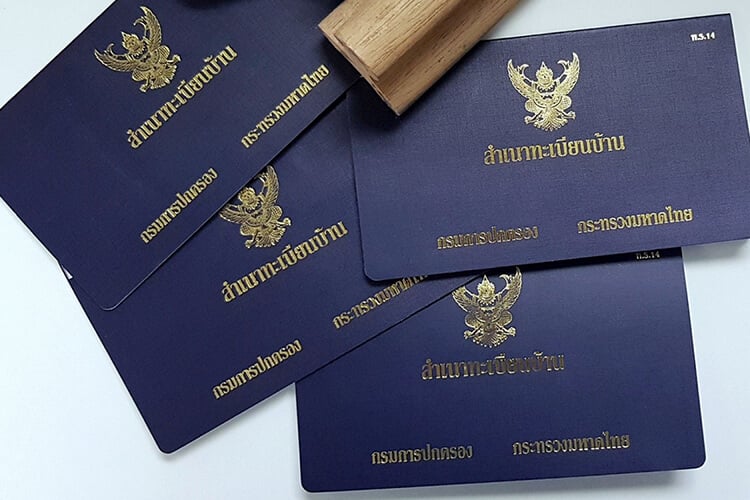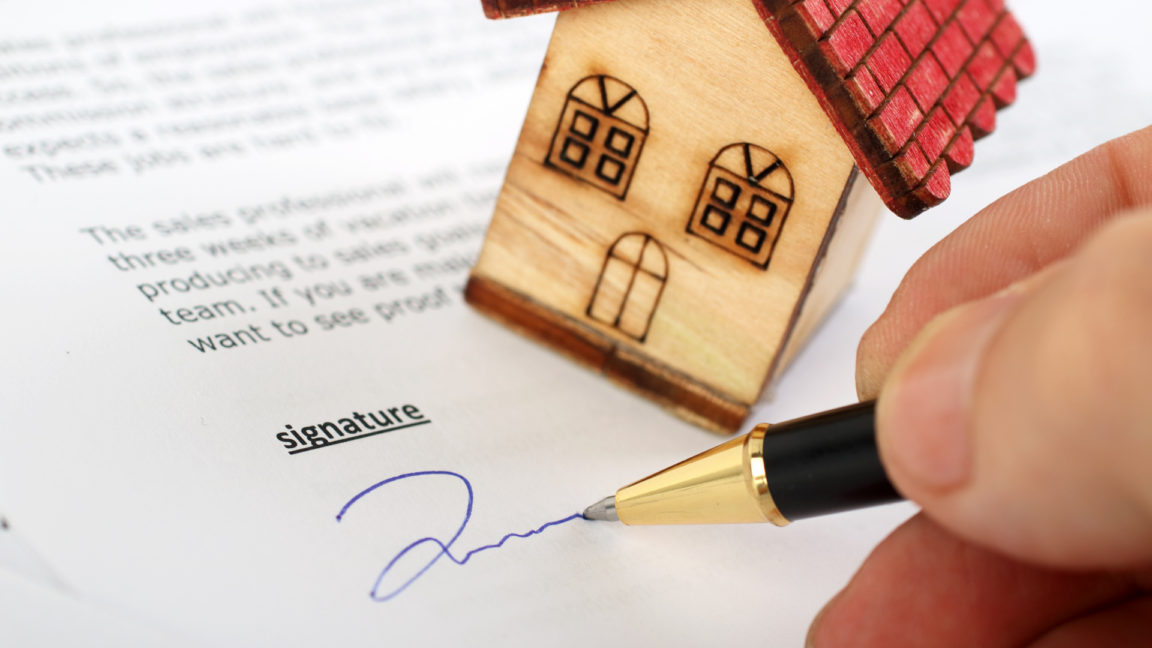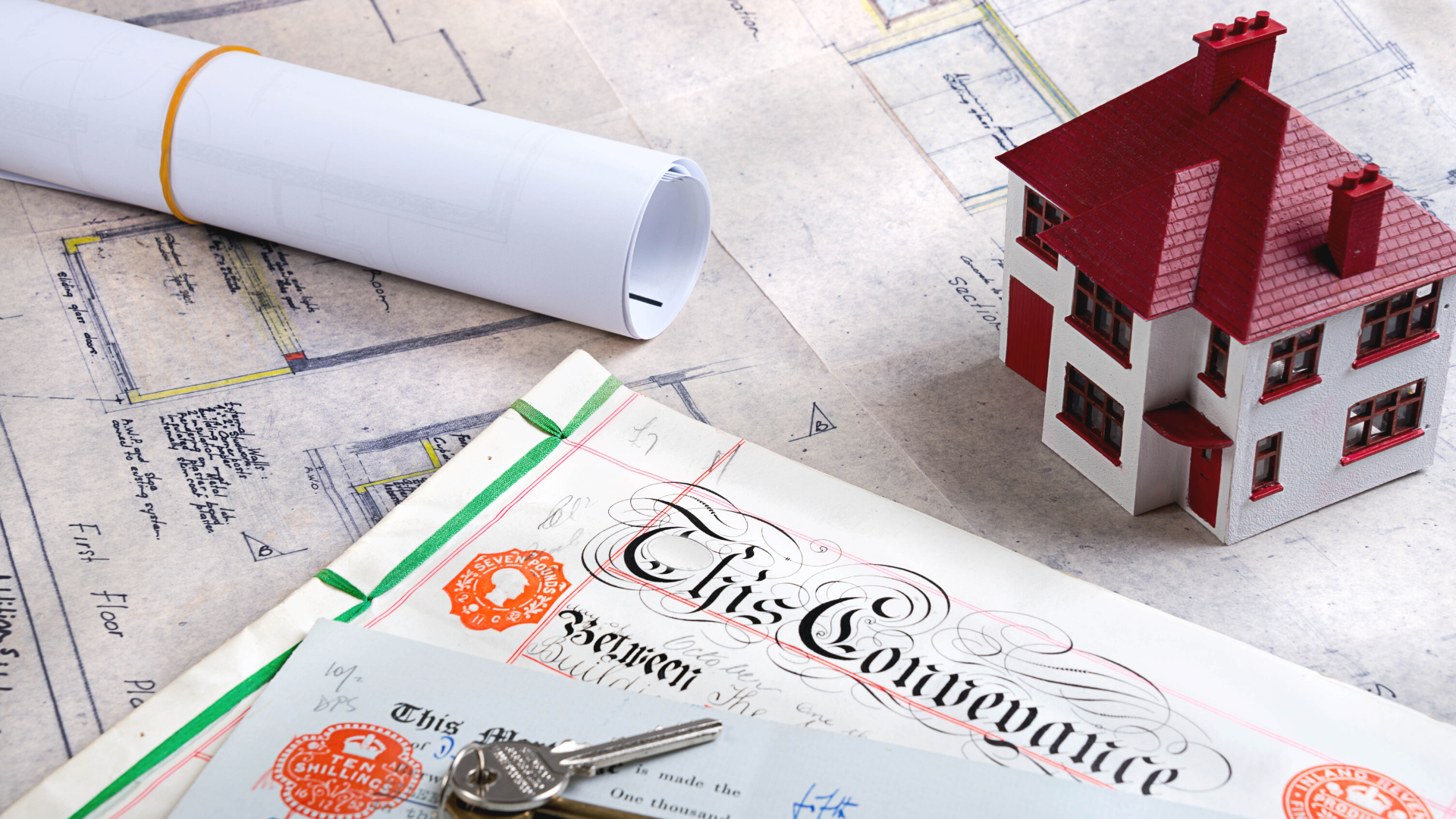In Short
Advice
'Tabien Baan' stands as another residential documentation. It is well-recognized by many due to personal and legal matters. Possessing a 'Tabien Baan' booklet is a must for homeowners, whether they own a house or a condo unit. Today, PropertyScout will be exploring the intricate details of Tabien Baan. These include required documents, fees, and the digital method for those unavailable.
What is Tabien Baan?

In Article 4 of the Population Registration Act B.E. 1991, Tabien Baan shows who lives in a particular house. This includes the house's ID number, the residents' names, and their personal details.
This involves the person's first and last names, ID number, gender, birthdate, and death date (if any). The registration also covers nationality, religion, where they live, parents' names, and more.
Tabien Baan Details
The following are the two parts of details in a house registration booklet
Details about the house
- The 11-digit house identification code holds significant information, particularly digits 1 to 4. They denote the registration office based on Thailand's province and district codes. Assigned digits 5-10 by the authorities are houses within that registration office. The 11th digit confirms the accuracy of the entire house identification number.
- The registration office specifies the local name. This corresponds with the first 4 digits of the house identification code.
- The address details such as the official representation of a house's location. These include including house number, village, street, sub-district, district, and province. In most cases, these details help fill out address information on various documents.
- Village name (housing project or village name).
- House name (housing project or village name).
- Type of house or condo.
- Characteristics of house or condo.
- Date of house number assignment.
Details about the residents
There are personal details about each resident in the Tabien Baan. These include name and surname, parents' names, ID number, birthdate. Also included are historical address movement and more. Note that the names listed within the house registration include two statuses. These statuses are "householder" and "resident."
Householder
"Householder" refers to who owns the house as a whole. As per the Population Registration Act B.E. 1991, the householder has to report to the registrar if needed. They can also assign this task to others:
- Birth Certificate for when a child is born and their name. The householder must add the child's name must to the household registration. The householder must notify the local registrar within 15 days (from the date of birth).
- Death Certificate for a resident's death. The householder must notify the local registrar within 24 hours ( from the time of death). The householder must also report within 24 hours of discovery of the death.
- House transfer notification for when individuals move in or out. The householder must to inform the local registrar within 15 days (from the day of moving in or out of the house).
- House Number Request for New Construction Notification. This is for a demolition of the existing house and construction for a new one. The householder must inform the local registrar within 15 days of house completion. Then, the householder can request for a house number.
Residents
Residents are individuals listed in the house registration. Regardless of which specific house they, it is their mhouseence. Each person can get registered in only one house, even if there amanyple houses or condos. Also, not every house needs to have registered residents (for those with many houses or condos).
The Required Documents in Requesting for a Tabien Baan
- "House Information Notification Form," known as Tor Ror.9 form. The local administrative unit, Village Head or Sub-district Chief, gives out the form.
- Building permit or construction certificate, which relates to construction rules. A property purchase agreement could be necessary.
- Land title deed or ownership document indicating land possession.
- ID card of the house owner, applicant, or authorized representative.
- Power of attorney, if the house owner cannot apply for house registration and needs someone else to do so. They will need an ID card, a copy owner's Tabien Baan, and signed copies in each important document set. The power of attorney document should have two witnesses who sign their acknowledgment.
- Photographs of the completed construction from four sides. These include the front, back, left, and right of the structure.
How to request for a Tabien Baan

In-Person Application
- Submit the required documents at the registration office. In Bangkok, you can submit at the district office's registration division. In other provinces, submit at the registration section under the district office.
- Following the submission, the registrar verifies the provided documentation. Once done, you get the house number and the Tabien Baan along with its copy.
- The issued documents are then delivered to the applicant.
- The process also involves registering individuals who are moving into the house.
*In case of loss or damage to existing Tabien Baan, a fee of 20 baht is applicable for reissuing the registration. For more information, contact the Department of Provincial Administration's registration management office. You can also call 1548.
Online Application
For convenience, you can also do Tabien Baan registration online.
- Download the DOPA application via the App Store for iOS and the Play Store for Android.
- Bring your ID card to submit in person. Submit at local registrar's office, or as specified by the central registrar director. This is to verify your identity through fingerprint and facial recognition. This is also to receive a Password (PIN) for app usage.
- The registering officer will verify documents and information before checking the app and selecting services.
Is the Owner's Name Necessary in the Tabien Baan?

For condominium units, it is optional to include the owner's name. But, having the owner's name on the Tabien Baan is easier for government agency transactions. Also, it benefits those who intend to sell the property. They can get exempted from specific business tax by 3.3% of the assessed value. This is as long as the owner's name has been on the Tabien Baan for over a year.
Is Condominium Registration Different from General Tabien Baan?
There is no difference between the two. Only difference the is details of the condominium registration. There is a specification of the residential address type. The classification is 'Condominium building.'
What to do in case of a house registration loss?

If you lose the Tabien Baan, you can request with the necessary documents:
The Required Documents
- Homeowner's ID Card.
- If you assign someone else on your behalf, you need the ID cards of the delegator and delegate. You also need a letter of authorization. The renewal fee for issuing a new copy is 20 Baht per copy.
Closing Comments
We hope that this article has provided value to all readers, regardless of the extent. Tabien Baan demands careful preservation for our security and well-being. For those uncertain, having this information ready will prepare you for registration. Furthermore, for added convenience, online platforms are accessible for service usage. Stay connected, as our team plans to share more helpful insights in the times ahead. Keep watch for upcoming updates!
For an excellent selection of houses or condos available both for sale and rent, along with amazing customer service as well as tips and suggestions, click the links below to get in touch with us today!
FAQs
Lorem ipsum dolor sit amet, consectetur adipiscing elit. Suspendisse varius enim in eros elementum tristique.
Explore More Topics
Free real estate resources and tips on how to capitalise



